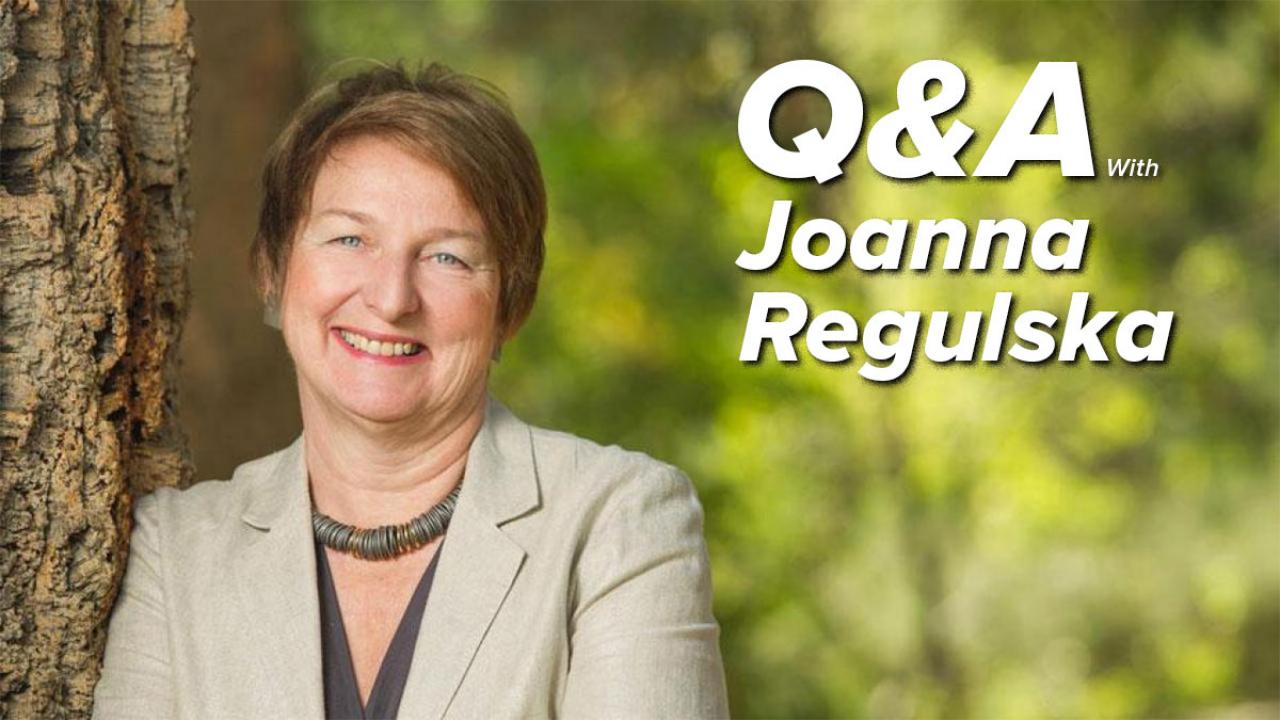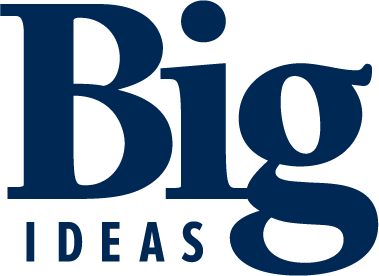
Latitudes of Learning for the Global Good
By Trevor Stewart
UC Davis is educating the next generation of global problem solvers and investing in the future by aiming to ensure that all students receive global learning experiences that will help them live, lead and thrive in an interconnected world.
Joanna Regulska is the vice provost and associate chancellor of Global Affairs and the Global Education for All Big Idea champion. Regulska believes UC Davis is the ideal place to integrate global learning into all colleges, schools and units in order to build the next generation of global leaders.
We spoke with her about Global Education for All and how it has the potential to change the way the UC Davis community learns and interacts.
Q: Why does every student need a global education?
A: The world is interconnected: Our shared challenges are global and the job market is global and local. Even if someone gets a job in Sacramento, it's often still part of the global market. Students need to have skills, knowledge and experiences that enable them to interact effectively in a diverse intercultural environment. They have to also understand the global systems that connect us and how to engage with them. I think that the key is to get students to recognize who they are: their own identity, their own trajectory, their own past experiences, how those have shaped who they are, how global dynamics have affected this and how they can engage with and impact global processes. This will be important for their learning and how they're going to be successful as professionals, in whatever career path they choose.
It's not only for one type of career or one kind of a job, it’s about who you are. Global learning helps students develop this capacity to be informed, open-minded and ready for the challenges and opportunities ahead.
Q: What types of global issues call for worldwide collaborations to create tangible solutions?
A: Climate change, poverty, human and animal health and water scarcity, for example, present a wide range of challenges. However, they also provide opportunities, which no doubt require global partnerships. It's important for us to work together to find solutions and create amazing new opportunities for action, engagement and partnerships. That's where the incredible learning opportunities emerge for students, because there are real-world challenges.
If there is a drought in Chile and a drought in California, are there any common solutions? Are there other different approaches to those common solutions that have to be generated locally? How do we work together using our own scenarios and articulate the solutions on a local level? As a university, we can make a real difference in educating students and in working with partners around the world through research, policy actions and education of our students about these common challenges.
Q: While studying abroad can be a component of global learning, this Big Idea of Global Education for All is much more comprehensive. Explain other ways students can engage in global learning.
A: We need to think about how we create programs that really meet the needs of the diverse UC Davis community and meet their individual circumstances to allow global learning to take place. For some students, traditional study abroad for a quarter, a summer or a year is a phenomenal option and a life-changing experience. Some students prefer to pursue internships in other countries. For others, international travel is not feasible financially or there are other barriers. But we can gain global experience right here in the Greater Sacramento area, which is one of the most diverse regions in the U.S.
Two of many excellent examples of students gaining meaningful global experiences without leaving the country are students, Tene Goodwin and Joyce Zamorano Sanchez, both of whom stayed in Davis over the summer and worked with our Mandela Washington Fellowship for Young African Leaders for six weeks. Both developed new networks and learned so much, about themselves and about the world, which you can read about in their blog posts here and here.
We also are seeing tremendous demand for global internships, shorter term programs abroad, research opportunities or for service learning, externships, training programs, as well as virtual collaborations.
Q: Why is UC Davis the best place for the Global Education for All Big Idea to come to fruition?
A: We have a comprehensive university that is already engaged on a global scale, a student, staff and faculty population that is global and we’re located in California, where our population and our economy are globally interconnected. As a public land-grant university, I think it is extremely important to educate global leaders who can address pressing challenges, many of which have global dimensions. One of our university missions is to serve the communities that surround us, and given our location, doing so effectively requires understanding how world issues, activities and conditions affect us, and how we can best engage them.
UC Davis also has a culture of collaboration and a deep commitment to inclusive excellence. Global Education for All is all about facilitating programs and opportunities that align with the teaching and research priorities of our colleges and schools, tapping the capacities of our diverse student population and building a campus culture within which we can learn about varying perspectives. I think the combination of these things is what makes UC Davis a very unique and one-of-a-kind place to strive to engage all students in global learning.
Q: What are some areas in which donors can help support this Big Idea?
A: Donor support can directly help students. There are students who want to study or pursue research, internships or training abroad or away, but cannot afford it. A few of the biggest barriers are: passport fees, program fees, pre-travel medical care, a suitcase and/or airfare. Supporting programs such as the newly-created Global Engagement Opportunities Living-and-Learning Community and a Campus Global Theme program provide global learning and engagement opportunities right here on campus. Each school and college has strategies for supporting global learning that offer targeted opportunities for investment.
Donors can leverage their support to impact thousands of students by supporting faculty curriculum and program development tailored to school and college needs. Our faculty could use seed grants to integrate global learning into their curriculum and enhance global education specific to their particular programs.
We also aim to create rotating endowed professorships to support faculty leadership in engaging their peers in the creation of new programs and engaging students in specific projects in each school and college. Donors can support student leadership for broader impact by supporting the Global Education for All Fellows — a group of dedicated undergraduate, graduate and professional student leaders who are catalyzing global learning across campus. Finally, upgrading classrooms with new technology is vital in allowing us to connect and engage in global learning with peers around the world through parallel teaching, joint student projects, collaborative extra-curricular initiatives and much more.
It’s an exciting time at UC Davis and with philanthropic support, we have incredible opportunities to prepare students in becoming the next generation of change makers.
